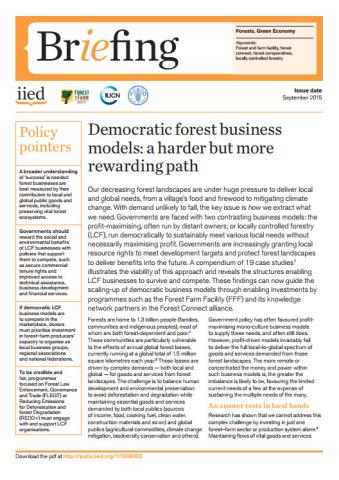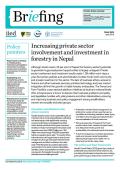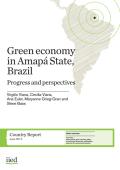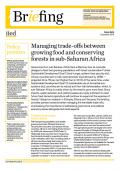
Our decreasing forest landscapes are under huge pressure to deliver local and global needs, from a village’s food and firewood to mitigating climate change. With demand unlikely to fall, the key issue is how we extract what we need. Governments are faced with two contrasting business models: the profit-maximising, often run by distant owners; or locally controlled forestry (LCF), run democratically to sustainably meet various local needs without necessarily maximising profit. Governments are increasingly granting local resource rights to meet development targets and protect forest landscapes to deliver benefits into the future. A compendium of 19 case studies illustrates the viability of this approach and reveals the structures enabling LCF businesses to survive and compete. These findings can now guide the scaling-up of democratic business models through enabling investments by programmes such as the Forest Farm Facility (FFF) and its knowledge network partners in the Forest Connect alliance.




